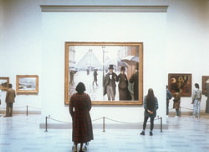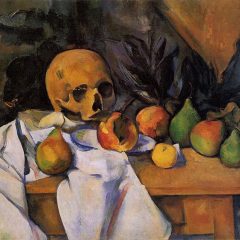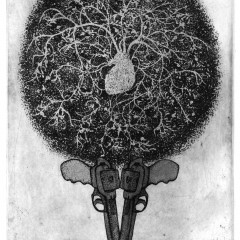
I’m reading J. Mark Schuster’s “Informing Cultural Policy,” a book I sent away for in a rush of excitement expecting some kind of recipe for the future of arts policy in America — a kick-ass book on how to influence national policy.
Of course the book is nothing like that, being a piece of academic research documenting the cultural policy infrastructures in European countries and Canada, ie., how Cultural Ministries collect data on audiences and somehow connect it with funding for the arts.
But the book’s appendix had some of the forward momentum I was looking for. It summarizes a Dec. 2001 seminar held at Rutgers Center for Urban Policy Research (CUPR) in which a group of eighteen policy wonks from institutions like the NEA, the Association of State Arts Agencies and research universities convened to discuss how to apply the findings in America.
I’ll cut to the chase here. Basically, you know what they found: there is a crying need for more data collection on the arts in this country; there is a crying need to organize the ad hoc, grounds-up data gathering done now by non-profits and others; there are encouraging signs (coming out of the private sector) like the Foundation Center and the New York Foundation for the Arts‘ National Information Center for Artists which provide information on grants; and finally, government in this country will not pay to support any kind of research on the arts.
Bottom line, the seminar participants come up with a big wish list that is as depressing as it is long…databases should be centralized; linkages should be established among the federal, state and local levels; information should be communicated in such a way to create demand. Yadda yadda.
Pew Charitable Trusts, the big thinker and big funder behind this entire effort, is to be commended. (Pew commissioned Schuster’s study, supported its translation into a book (published by (CUPR) and helped convene the 2001 seminar.)
Ultimately, reading this book left me demoralized. It made me realize the impossibility of top-down policy making in the arts in this country. As for the grounds-up approach, emergence is a great concept –groups springing up and banding together to foster their issues and efforts but it’s hard to organize up to the next level.
Speaking of higher level, maybe the arts need to be taken out from under the rubric of the NEA. Maybe, all those emerging groups, coop galleries, community arts centers and the like should be under the wing of the Small Business Administration instead. (Why not? They’re businesses.) Maybe then our business-driven government could find a place for the arts at the national table. Maybe then, the arts could be part of the country’s plan for the future instead of its whipping boy. (Image is Thomas Struth’s photo, “Chicago Art Institute,” 1990)









